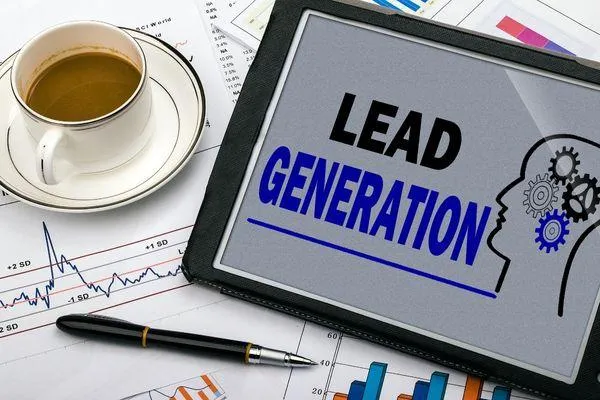

Marketing Systems Blog
Check out our articles and how to guides here.

4 tips to Understanding The Differences Between Sales And Lead Generation
Lead generation and sales are two distinct activities that play a crucial role in the success of any business. Lead generation is the process of acquiring prospective customers and generating interest in your product or service. This typically involves creating content, developing relationships with potential customers, and engaging in outreach efforts to increase awareness about your brand. Sales, on the other hand, is the process of converting leads into paying customers. It involves closing deals, negotiating contracts, and providing customer service to ensure customer satisfaction.
Lead generation strategies vary from business to business and can include using digital marketing tools like SEO, PPC campaigns, email marketing, or social media. For B2B businesses, utilizing relationships with potential customers, researching markets and industry trends, attending trade shows or conferences, and providing content such as case studies can be effective lead generation strategies.
In short, lead generation is the process of acquiring potential customers while sales is the process of converting these leads into paying customers.
With that said, here are 8 reasons why you should start blogging on your website today! 👊
Introduction
Lead generation and sales are integral parts of any successful business, yet many entrepreneurs struggle to understand the difference between the two. Lead generation is the process of acquiring prospective customers and generating interest in your product or service, while sales is the process of converting those leads into paying customers. In this article, we'll explore lead generation strategies for B2B businesses, the difference between lead generation and sales, and how to leverage relationships to generate leads. With a comprehensive understanding of these concepts, you'll be in a better position to maximize your ROI with effective lead generation strategies.

The Difference Between Lead Generation And Sales: What You Need To Know
Sales and lead generation aren't the same thing, but they're often confused. Sales is about closing a sale, while lead generation is about getting people to express interest in what you have to offer.
The difference between sales and lead generation can be summed up by saying that sales is the top of the funnel and lead generation is the bottom of the funnel. In short:
Sales occur when customers are ready to buy, while leads are potential customers who haven't yet expressed interest in buying.
Leads are your best source of sales, so it's important that you know how to generate high-quality leads.
Lead generation is the process of identifying potential customers who might be interested in your products or services. It starts with research and ends with identifying a target audience that can be reached through marketing campaigns, social media posts and other methods.
Sales is the process of actually selling products to customers who have already expressed interest in buying them. This may involve negotiation, convincing or educating customers about why they should buy something from you instead of someone else.

How To Leverage Relationships To Generate Leads
According to the Harvard Business Review, "In the modern economy, relationships are the keystone of competitive advantage." The same article goes on to say that "the most important factor in determining a company's success is how well it builds and manages its network of relationships."
It's no secret that relationships are the key to generating leads. But what about leveraging relationships to generate leads? That's what this post is all about.
Relationships are important because they help you build trust with leads. When people know you, they're more likely to trust what you have to say and buy from you. They'll also be more willing to refer others if they like your company and products.
But how do you leverage relationships to generate leads? Here are a few ways:
Leveraging relationships to generate leads is a key part of any successful business strategy. Here are some tips on how to do it effectively:
Identify your target audience: Before you can start leveraging relationships to generate leads, you need to know who you are trying to reach. Consider factors such as age, location, interests, and needs when identifying your target audience.
Build your network: The more people you know, the more potential leads you have. Attend industry events, join professional organizations, and make connections on social media to expand your network.
Cultivate relationships: It's not enough to just have a large network of people you know. You need to actively cultivate those relationships to make them meaningful. This means regularly interacting with people in your network and helping them when you can.
Ask for introductions: Once you've built up a strong relationship with someone, ask if they would be willing to introduce you to someone they know who might be a good lead for your business.
Follow up: After you've made an introduction or had a conversation with a potential lead, be sure to follow up. This could be through email, phone, or social media.
Crafting A Winning Lead Generation Strategy For Your B2B Company

A successful lead generation strategy can help a B2B company generate new business and grow. Here are some tips for crafting a winning lead generation strategy for your B2B company:
Define your target audience: It's important to understand who your ideal customer is and what they are looking for. This will help you create a targeted lead generation strategy that speaks to their needs and interests.
Identify your value proposition: What makes your business unique and why should potential customers choose you over the competition? Clearly communicate your value proposition to potential leads.
Utilize content marketing: Creating and sharing valuable, relevant, and consistent content can help attract and retain a clearly defined audience and drive profitable customer action.
Leverage social media: Social media platforms can be a great way to reach potential leads. Share your content and engage with your audience to build brand awareness and generate leads.
Use email marketing: Email marketing can be a powerful lead generation tool. Use email campaigns to stay top-of-mind with potential leads and nurture them through the sales funnel.
Invest in paid advertising: Paid advertising, such as pay-per-click (PPC) and retargeting, can help you reach a wider audience and generate leads more quickly.
Utilize lead magnets: Lead magnets, such as ebooks, webinars, and free trials, can be effective in generating leads by offering something valuable in exchange for contact information.
By following these tips and continually testing and optimizing your lead generation efforts, you can effectively generate new leads and grow your B2B business. A comprehensive lead generation plan should include both online and offline strategies, such as building relationships with potential customers, researching markets and industry trends, attending trade shows and conferences, providing content such as case studies, utilizing digital marketing tools, and crafting a winning lead generation strategy for your B2B company.
Exploring The Benefits Of Lead Generation For B2B Businesses
Lead generation is an essential component of any successful business. By Consistently utilizing effective lead generation strategies, businesses can acquire prospective customers and generate interest in their products or services. This process can have a number of benefits for B2B companies, such as providing valuable insights into customer behavior, helping them reach new markets, and increasing their sales.
Here are some of the benefits of lead generation for B2B businesses:
Increased brand awareness: Lead generation efforts can help increase brand awareness and visibility for your business. By creating and sharing valuable content and engaging with potential leads on social media and through email marketing, you can build awareness and establish your business as a thought leader in your industry.
More qualified leads: A well-planned lead generation strategy can help you attract more qualified leads that are more likely to convert into paying customers. By targeting your marketing efforts to specific audience segments and utilizing lead magnets, you can attract leads that are more likely to be interested in your products or services.
Improved sales efficiency: By generating a steady stream of qualified leads, your sales team can focus on nurturing and closing deals, rather than spending time and resources on finding new leads. This can improve the efficiency and productivity of your sales team and help drive revenue growth.
Better customer acquisition cost: Lead generation can also help lower your customer acquisition cost by attracting leads that are more likely to convert into paying customers. This can help you acquire new customers at a lower cost, which can improve your overall profitability.
Finally, lead generation can help businesses maximize their return on investment (ROI). By investing in effective lead generation strategies, businesses can ensure that they are reaching the right people and spending their resources wisely. Additionally, by tracking the results of their lead generation efforts, businesses can make sure that they are getting the most out of their investments.
